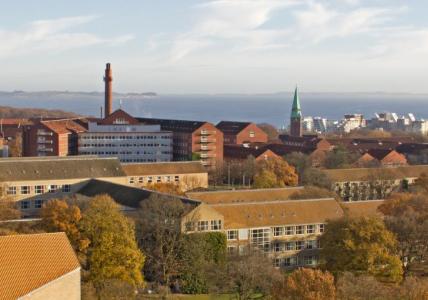A magic tale about transnational cooperation, brought to you by the PARTRIDGE project.
Once upon a time there were three stools and each stool had three legs. The owners of the three stools were three pillars of the local European community who loved to wear CAPs. They were a farmer, a hunter, and a conservationist.
Each stool owner guarded their stool very closely and would never ever let one of the others see it. The farmer and his wife believed that their stool had magical powers and that it helped them to maximise their profits, reduce their costs and to utilise every corner of their land for producing food. The hunter also thought his stool was magic because it ensured he had plenty of things to hunt, plenty of places to hunt and that this would go on forever. The conservationist thought her stool was magic because it could create more wild places, create more wildlife and gave her a sense of righteousness and wellbeing.
One day the farmer realised that one of the legs of the three-legged stool had started to rot. The next day the farmer’s wife noticed that the rot in one leg had started to affect the other two legs and that the seat became very wobbly and dangerous to sit on. This worried them as they realised that the magic powers were starting to fade.

A PARTRIDGE farmer in his flower plot. Image: PARTRIDGE
At the same time as the farmer and his wife were watching their stool collapse before their eyes, the hunter noticed that one of the legs of his three-legged stool had started to rot. The next day his seat was decidedly unstable and he noticed the magic was getting weaker.

Image: M. Jenny
The conservationist realised that in actual fact her three-legged stool had been losing its magic power for years. She became worried that the stool would no longer hold her weight.
A local dignitary Mrs N. S. R. Interreg had heard a rumour that the three-legged stools, belonging to the three pillars of the local community, had lost their magic and were starting to collapse. She had heard about a wise old man called Mr PARTRIDGE who might be able to stop the rot and give their seats new magic powers.
Mr PARTRIDGE was invited to a summit to discuss what could be done to return the three-legged stools to their former glory. The local dignitary had to work very hard to not only get the farmer, hunter and conservationist to come to the summit but to get them to bring their three-legged stools with them. In the end they were persuaded to at least let Mr PARTRIDGE demonstrate to them what he could do to restore the stools and the magic. The local dignitary promised that if after this demonstration the ‘three pillars’ were convinced that Mr PARTRIDGE could do what he claimed then she would provide the resources and materials for the full rehabilitation of the stools.

Mr PARTRIDGE in his habitat. He is holding an umbrella to show that he is an 'umbrella species'. Where the partridge is thriving, lots of other species will thrive too.
Mr PARTRIDGE performed his own bit of magic and the stools were restored – but not quite to their former glory. In fact they were even better than before because Mr PARTRIDGE had mixed and matched the nine legs from the three stools to create seats that would last indefinitely.
The farmer, the hunter, and the conservationist were all happy to see their three-legged stools back. When they saw that the stools were better than ever, they were so pleased that they agreed to share the stools and the magic. The conservationist was delighted to see so much more wildlife when she sat on her stool. The hunter was happy on his stool knowing that places to hunt would be there for generations to come. The farmer and his wife noticed, whilst sitting on their stool, that their bottom line looked healthy despite giving up some of their land to provide more natural areas for native animals.
They all realised that the humble three-legged stool could provide sustainable, versatile solutions to prevent farmland becoming a wildlife desert and they all lived happily ever after.

In the PARTRIDGE project, farmers, hunters and conservationists work together around a common goal: Raising biodiversity in farmlands. Image by PARTRIDGE.
About the PARTRIDGE project
PARTRIDGE takes a bottom-up approach to increasing biodiversity in farmlands. Focusing on wild birds and insects, the project brings together farmers, hunters and conservationists to jointly develop and test solutions.
The project has generated impressive initial results and is met with great interest across the region. External farmers within and beyond the North Sea Region have already adopted the PARTRIDGE methodology. In the Netherlands and Belgium, respectively, it has been incorporated into regional policy and farming school curricula.

Two male partridges fighting over territory. PARTRIDGE helps bring back this once-common farmland bird. Photo: Phil Gwilliam
About the author
This story was collectively written by the PARTRIDGE team.
Top photo by PARTRIDGE
Author image by OpenClipart-Vectors from Pixabay



